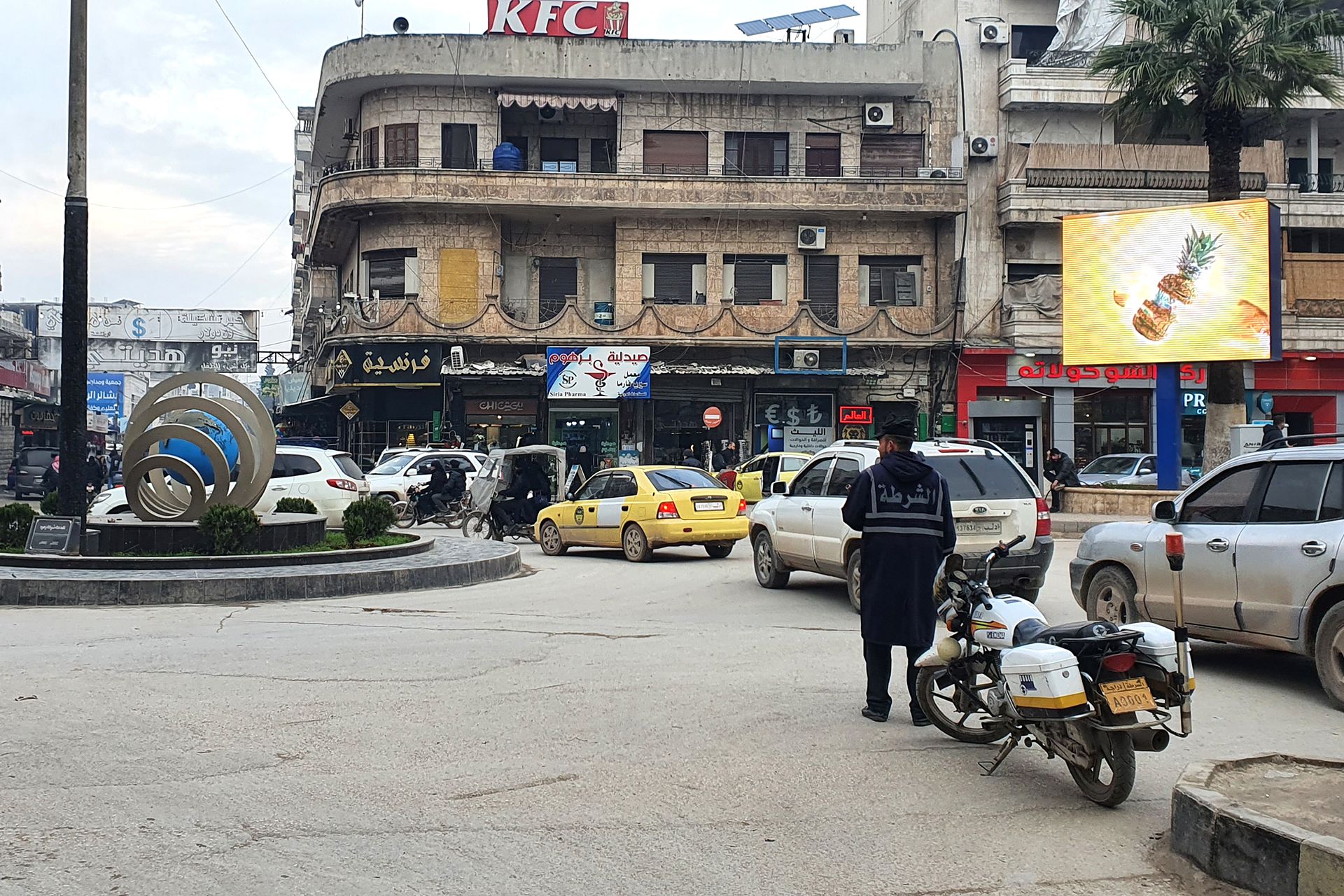The Ministry of Interior in the Salvation Government in Syria announced the opening of membership for the Morality Police (Al Jazeera)
Northern Syria -
The draft law on public morals proposed by the opposition Salvation Government operating in areas controlled by Hay’at Tahrir al-Sham in northwestern Syria sparked mixed reactions, between those welcoming the law and encouraging it to fortify society, and others opposing and rejecting it, finding it a restriction of public freedoms.
The law includes a set of rules and provisions related to the moral and behavioral system of individuals and society, including 128 articles, the most important of which are the establishment of a public morals police, imposing the hijab on girls over 12 years old, prohibiting the playing of songs in public places, and prohibiting mixing of genders at work.
The new law prohibits musical performances, visual performances, and disturbing neighbors with noise, and prohibits smoking in public and service institutions and closed public facilities. It obliges wedding hall owners to employ workers in women’s wedding halls, and prohibits shooting or using weapons at weddings. It also prohibits serving hookahs in restaurants and cafes.
While the Public Morality Police undertakes tasks, the most important of which is monitoring road media, means of entertainment and recreation, commercial, industrial and service establishments, roads and public facilities, and preventing violations of morals and public taste therein.
The city of Idlib in northern Syria is under the authority of the Salvation Government (Al Jazeera)
Community values
"Al Jazeera Net" polled the opinions of a number of people in Idlib, northwestern Syria, to find out the residents' reactions to the draft law.
The young man from the city of Idlib, Mahmoud Al-Abed, believes that the project is very useful for public life, as it takes into account the values of the Islamic religion and the customs and traditions of Syrian society, but it may not find positive acceptance among all segments of the population.
Al-Abed said - in an interview with Al Jazeera Net - that the most prominent thing that aroused his interest in the draft law was the ban on playing songs and the prohibition of reckless driving and mingling in the workplace without supervision, indicating that the last clause may not be popular with everyone.
In turn, Aziz Al-Idlibi (a pseudonym) confirmed that the law limits public freedoms and interferes with personal behavior, such as prohibiting drinking hookahs in public places or listening to music and songs, expressing his rejection of several articles in the draft law.
For her part, student Yasmine (who declined to mention her full name) considered that the law is positive in controlling several matters that violate public morals in the streets and markets, but it is negative in the issue of preventing mixing at work, because it limits women’s work and prevents them from benefiting from opportunities in the labor market. .
Central idea
But the researcher on Syrian affairs, Orabi, believes that the draft law comes from the emphasis of “Hay’at Tahrir al-Sham” and the Salvation Government on the idea of “centralization” of government and authority, away from randomness in ideas, stressing that the previous period witnessed the presence of the Hisbah police in the absence of a law controlling and regulating the work. , and relying on the jurisprudential memory of the elements.
Orabi said, in an interview with Al Jazeera Net, that the draft law contains clear regulations to emphasize the "rule of Sharia", in light of what was reported recently about Hay'at Tahrir al-Sham moving away from religion and ideology, so that its religious and legal dimension appears in front of the people in the latest draft law.
Orabi stressed that what was stated in the draft law is from the culture of society and Islamic law, and is present in the Syrian Penal Code, expressing his belief that there are biased people against the Commission who reject the law, and some of them want to find fault and accuse the government of being strict in implementing the law.
The Salvation Government refused to comment to Al Jazeera on the draft law (Al Jazeera)
Conditions of affiliation
The Ministry of Interior in the Salvation Government announced at the beginning of this January the opening of membership to work within the Public Morality Police according to specific conditions, and the announcement continued until the seventh of the same month.
The Ministry required that the applicant be a graduate of the College of Sharia or an Intermediate Sharia Institute, be between 30 and 40 years old, not convicted of a felony or heinous crime, and pass the course determined by the Ministry.
Al Jazeera Net tried to contact the Ministry of Interior in the Salvation Government to obtain its opinion regarding the draft law on public morals or the morals police file, but the latter refused to make a statement at the present time, and responded that the current period is to select the elements participating in the competition to select police officers.
Source: Al Jazeera

